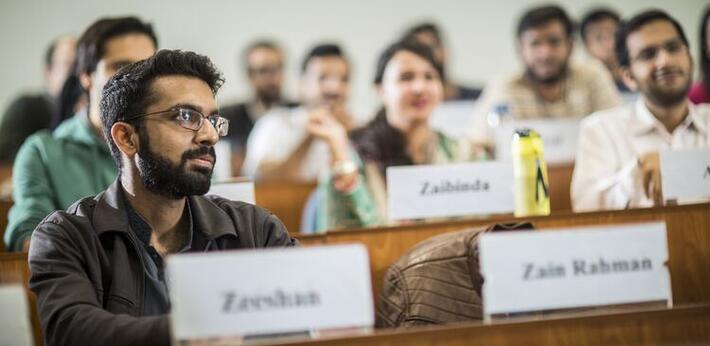You are here
Home ›08/02/2024
India introduces new credit-based framework in CBSE schools
India’s Central Board of School Education (CBSE) is preparing to launch a new academic framework for students from the 9th to 12th grades, which is likely to be rolled out from the next academic year 2024-25. Changes are being made to the number of subjects which a student will study and assigning of credits based on notional learning hours.
The transition to a credit-based curriculum in school is aligned to the vision of the country’s National Education Policy. It aims to bring parity between general and vocational education, provide flexible and holistic learning opportunities for the student, and facilitate smooth movement between the two pathways.
CBSE is one of several school boards active in India, managing 29,000 schools across India with a total of nearly 27 million students. This represents around 2 per cent of schools but around 10 per cent of students in India’s basic education system. While CBSE is the first to introduce the new curriculum, other national and state-level school boards are expected to introduce similar changes in coming years.
Changes under the new system
- An additional language, multidisciplinary and vocational education are being added to the existing curriculum.
- Students in Class 9-10 (typically ages 14-16) will now study a total of three languages (up from two), of which at least two must be Indian native languages.
- Students in Class 9-10 will now study 10 subjects, up from 5 previously. The three main subjects (maths, science and social science) in the previous system will be replaced with seven key subjects. These would be mathematics and computational thinking, social science, science, art education, physical education and well-being, vocational education, and environmental education.
- Students in Class 11- 12 (ages 16-18) will study two languages, of which one must be an Indian native language while the other is likely to be English.
- With addition of another language, the total number of subjects studied by students in Class 11-12 would increase from five to six. An additional seventh subject can also be chosen if student so wishes.
- Credits will be assigned independent of the grade/scoring system. Student will be declared pass if the required number of 1200 learning hours per academic year are met.
- Alongside, students will continue to be graded on the scale of A1-E. Grades will be based on student’s relative performance in the class rather than their absolute marks.
The requirement of 1,200 notional learning hours per academic year – corresponding to 40 credits – includes both academic learning at school and non-academic or experiential learning outside the school.
British Council comments:
CBSE's newly introduced credit framework is in line with the Indian Ministry of Education’s National Credit Framework (NCrF), which was announced in 2022 as a set of guidelines for schools, colleges and universities. In turn this framework is in line with India’s National Education Policy 2020.
The CBSE proposal has been through a consultation process with their affiliated schools and is expected to be finalised soon, however, it is still not confirmed if it will be implemented from next year or later.
This development is part of a strategy to create a unified structure of credits right from schools to higher and further education. It is aimed to help create favourable conditions to mainstream vocational education, support student dropouts to re-enter the education ecosystem, promote stronger collaboration between institutions, and promote Recognition of Prior Learning for those who have acquired knowledge and skills informally.
It will be interesting to see how these credits are implemented and how the local higher education institutions formulate their approach to determine eligibility for admissions based on credits and grades. UK universities may want to monitor developments on this front and understand the mechanics of the new curriculum system to inform their own recruitment approach to admission of students from CBSE schools.
Links:






